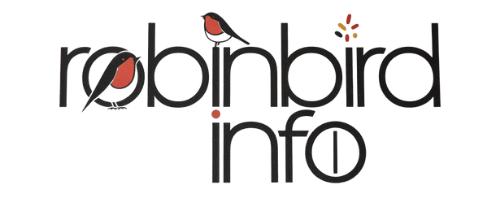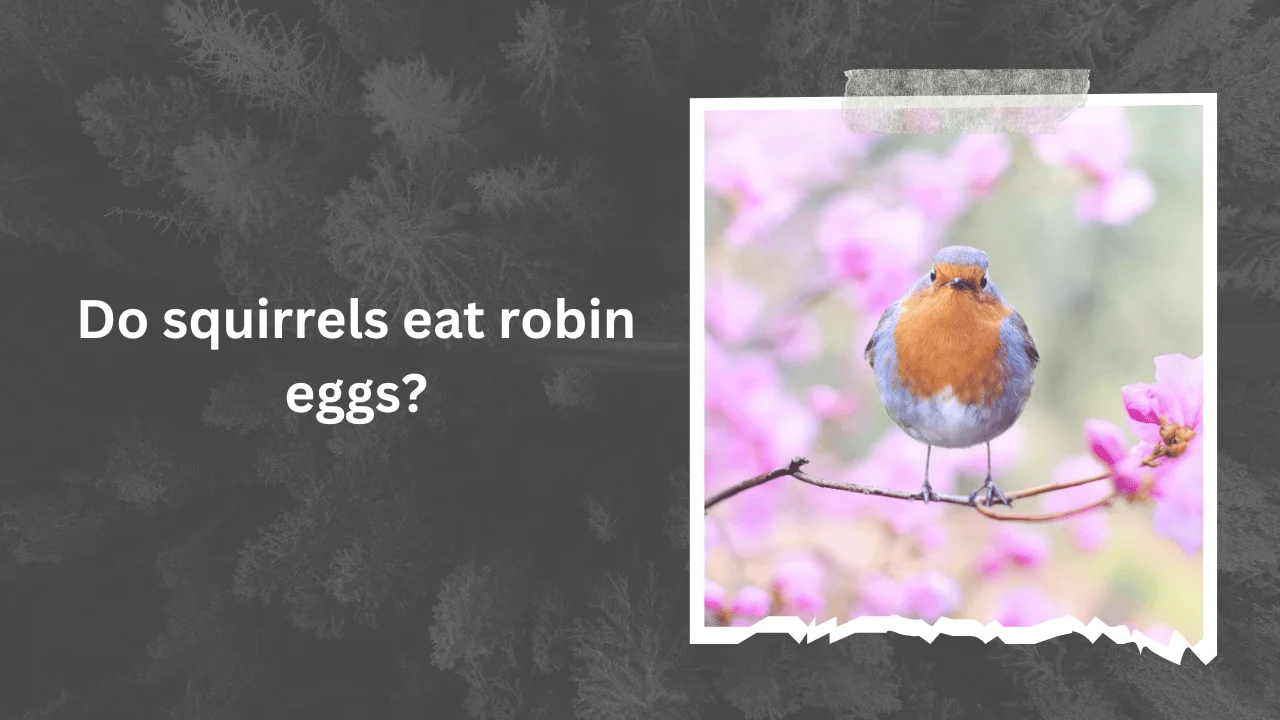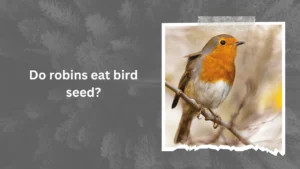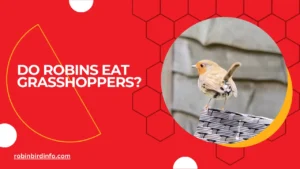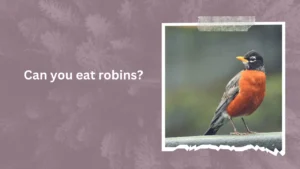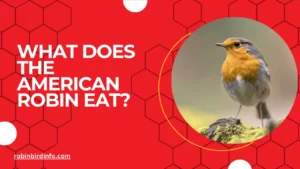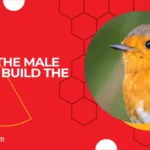Have you ever watched a Robin diligently building its nest, a symphony of twigs and leaves carefully woven into a cozy home?
It’s a heartwarming scene, a testament to the wonders of nature. But what if we told you there might be a secret thief lurking in the shadows, eyeing that nest with hungry intent?
Yes, you read that right! Those adorable, bushy-tailed squirrels you see scampering around your backyard might have a surprising side hustle – egg snatching! While we often picture them munching on nuts and acorns, the truth is, squirrels are opportunistic feeders.
This means they’ll take advantage of any readily available food source, and unfortunately, for Robins, that can sometimes include their precious eggs.
So, the question begs to be answered: are your beloved Robins truly vulnerable to these furry bandits? In this blog post, we’ll delve into the fascinating, and sometimes surprising, world of backyard predators. We’ll explore the reasons why squirrels might target Robin eggs, the impact it has on bird populations, and even discuss strategies to protect those vulnerable nests.
Buckle up, nature enthusiasts, because we’re about to crack the case of the Great Nest Caper!
Contents
- 1 The Role of Squirrels as Predators
- 2 The Vulnerability of Robin Eggs
- 3 The Impact of Squirrel Predation on Robin Populations
- 4 Strategies to Protect Robin Nests
- 5 Coexistence and Balance
- 6 Conclusion
- 7 FAQ’s
- 7.0.1 Are squirrels the only threat to Robin eggs?
- 7.0.2 Can I relocate a Robin’s nest if it’s in a dangerous location?
- 7.0.3 How can I deter squirrels from my bird feeders?
- 7.0.4 Do Robins build their nests in the same location every year?
- 7.0.5 What is the typical lifespan of a Robin?
- 7.0.6 Can I help protect Robin nests?
The Role of Squirrels as Predators
Squirrels are opportunistic feeders with a diverse diet. While they primarily rely on nuts, seeds, and fruits, they are not averse to expanding their menu when the opportunity arises. This opportunistic behavior can lead them to target bird nests, including those of Robins.
The Vulnerability of Robin Eggs
The vulnerability of Robin eggs to squirrel predation is influenced by several factors. Nest location plays a crucial role. Nests placed in exposed locations, such as low-hanging branches or open areas, are more susceptible to attacks.
The size and shell strength of Robin eggs also contribute to their vulnerability. Smaller eggs with thinner shells are more easily damaged or consumed by squirrels.
Robins employ various defensive strategies to protect their nests, such as aggressive displays, dive-bombing, and vocalizations. However, these defenses may not always be effective against persistent squirrels.
The Impact of Squirrel Predation on Robin Populations
While squirrel predation can impact local Robin populations, it’s important to consider other factors that may influence population dynamics. Habitat fragmentation, food availability, and climate change can also affect Robin populations.
However, in areas with high squirrel populations and limited nesting sites, squirrel predation can have a significant impact on Robin breeding success. This can lead to reduced reproductive output and, consequently, smaller populations.
Strategies to Protect Robin Nests
To mitigate the risk of squirrel predation, bird enthusiasts can implement several strategies:
- Nest Box Design: Using nest boxes with squirrel-proof features, such as baffles and smooth surfaces, can deter squirrels from accessing the nest cavity.
- Predator Guards: Installing predator guards around nest boxes or natural nesting sites can create a physical barrier, preventing squirrels from reaching the nest.
- Habitat Management: Creating a diverse and healthy habitat can reduce the abundance of squirrels and other predators. Planting native plants, providing water sources, and minimizing human disturbance can help attract birds and discourage squirrels.
Coexistence and Balance
While squirrels can pose a threat to bird populations, it’s important to recognize their role in the ecosystem. Squirrels are also part of the natural balance and contribute to seed dispersal and other ecological processes.
Rather than eliminating squirrels, we can promote coexistence by creating a balanced ecosystem. By providing alternative food sources for squirrels, such as bird feeders filled with sunflower seeds, we can reduce their reliance on bird eggs.
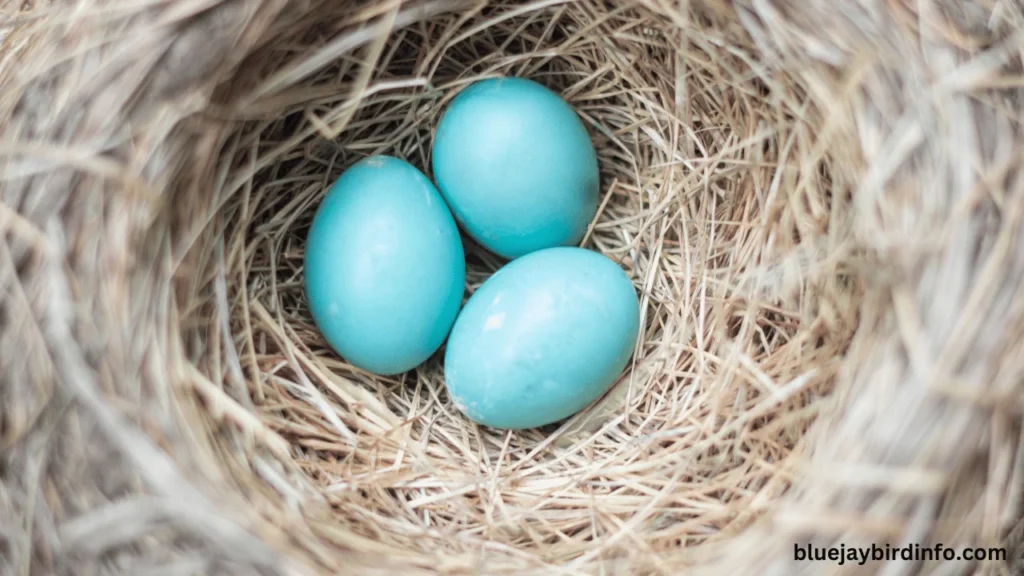
Ultimately, a healthy ecosystem requires a balance between predator and prey. By understanding the dynamics of these relationships, we can take steps to protect bird populations while respecting the role of other animals in the natural world.
Conclusion
Squirrels can pose a significant threat to Robin nests, especially during the breeding season. However, by understanding the factors influencing predation and implementing appropriate strategies, we can help protect these beloved birds.
By creating a balanced ecosystem and promoting coexistence, we can ensure the survival of both Robins and squirrels.
FAQ’s
Are squirrels the only threat to Robin eggs?
While squirrels are a common threat, other predators like cats, raccoons, and snakes can also prey on Robin eggs.
Can I relocate a Robin’s nest if it’s in a dangerous location?
It’s generally not recommended to relocate a Robin’s nest, as it can stress the birds and disrupt their breeding cycle. However, if the nest is in immediate danger, consulting with a wildlife rehabilitator can provide guidance.
How can I deter squirrels from my bird feeders?
To deter squirrels from bird feeders, you can use squirrel-proof feeders, place feeders close to windows, and avoid overfilling feeders.
Do Robins build their nests in the same location every year?
While some Robins may return to the same nesting site year after year, others may choose new locations.
What is the typical lifespan of a Robin?
The average lifespan of a Robin is about two years.
Can I help protect Robin nests?
You can help protect Robin nests by avoiding disturbing them, keeping cats indoors, and providing a safe and inviting habitat for Robins.
